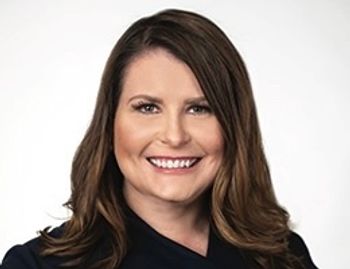
Risk for rural hospitals due to tax package
Lawmakers added a $50 billion fund to aid rural hospitals, but healthcare leaders say the money won’t offset other losses due to Medicaid cuts.
Health systems say that Medicaid cuts in the tax package could lead to the closure of hospitals, and they warn that rural hospitals could be among the most likely to be at risk of shutting down.
President Trump signed the massive package July 4, and
Late in the process of finalizing the legislation, lawmakers added a $50 billion fund designed to stabilize rural hospitals. Some Senate Republicans had worried that rural hospitals would end up closing, and the new fund was added to address those concerns and ensure the support of wary Republicans, analysts say.
The $50 billion fund is slated to be distributed over five years, and healthcare leaders say the money could provide some help. But healthcare leaders and analysts say the fund isn’t going to make up for the other losses, and rural hospitals could still close or cut services to stay open.
Chip Kahn, president and CEO of the Federation of American Hospitals, says he thinks rural hospitals will have a difficult time even with the stabilization fund.
“I think it's a band-aid,” Kahn tells Chief Healthcare Executive®. “It's limited in scope, and it's limited in time, and the damage done by this legislation to rural hospitals will be something that extends over the entire life of the law.”
“Frankly, I know of hospitals in rural areas that will be losing millions of dollars of revenue due to these cuts,” Kahn says.
‘Won’t fully compensate’
Matt Cook, president and CEO of the Children’s Hospital Association, also expressed skepticism about the rural hospital fund being able to keep facilities afloat in the wake of other losses. “It's time-limited and scope-limited,” he told Chief Healthcare Executive®.
With rural hospitals potentially cutting services or closing, children’s hospitals are likely to see more patients, adding to their own cost pressures and heavy volume in emergency departments, Cook says.
Rural hospitals may not necessarily get a lifeline from the stabilization fund in the legislation, Larry Levitt, executive vice president for health policy at KFF, said during a KFF webinar on the tax package Wednesday.
“It won't fully compensate for the cuts, especially since it's temporary and the cuts are permanent,” Levitt said during the KFF webinar.
Rural hospitals have been facing a perilous financial road for years. About
It’s unclear how many rural hospitals could be threatened or shuttered by the legislation, Levitt said.
“Rural hospitals have been closing steadily, and they will certainly close in the years ahead,” he said “As a political matter, I am certain that will get blamed on this …. And in some cases, that might be right. In some cases, that might just be pinning blame.”
Still, rural hospitals have small margins and will have to weigh the coming reductions to determine if they can stay afloat, Levitt said.
But he also said it’s not just about hospitals closing. Some may look at pulling back the services they provide in order to survive.
“It's not a binary decision always about whether a hospital closes or not. It’s also the services they're able to provide,” Levitt said.
‘Wholly inadequate’
The rural hospital fund doesn’t compare to what providers serving rural communities will be losing, said Cassie Sauer, president and CEO of the Washington State Hospital Association.
“The rural fund is wholly inadequate: It adds bureaucracy and administrative hurdles to accessing funds and does not even come close to making up for payment cuts,” Sauer said in a statement. “Offering this as a solution is like punching someone in the face and then offering them a Band-aid.”
Bruce Siegel, MD, president and CEO of America’s Essential Hospitals, noted that the package places restrictions on state directed payments. Those payments “are a critical source of support for hospitals, particularly in rural areas,” Siegel said last week.
The North Carolina Healthcare Association said the tax package “would effectively dismantle” its state directed payment program that supports Medicaid expansion and rural hospitals. The rural hospital fund “is an inadequate substitute,” the association said.
The Virginia Hospital & Healthcare Association pointed to the possibility of rural hospitals having to close in the fallout of the tax package.
“It is likely that several hospitals, including those serving rural parts of Virginia, could end up closing in that scenario,” the group said in a statement. “Others may have to cut services or reduce employment, which would limit patient access to care.”
Drew Altman, president and CEO of KFF, said the rural hospital fund provided cover for Senate Republicans who were worried about hospital closures.
“It directly helps hospitals,” Altman said during the KFF webinar. “It doesn't cover people who lose coverage, who might go to those hospitals.”






















































































